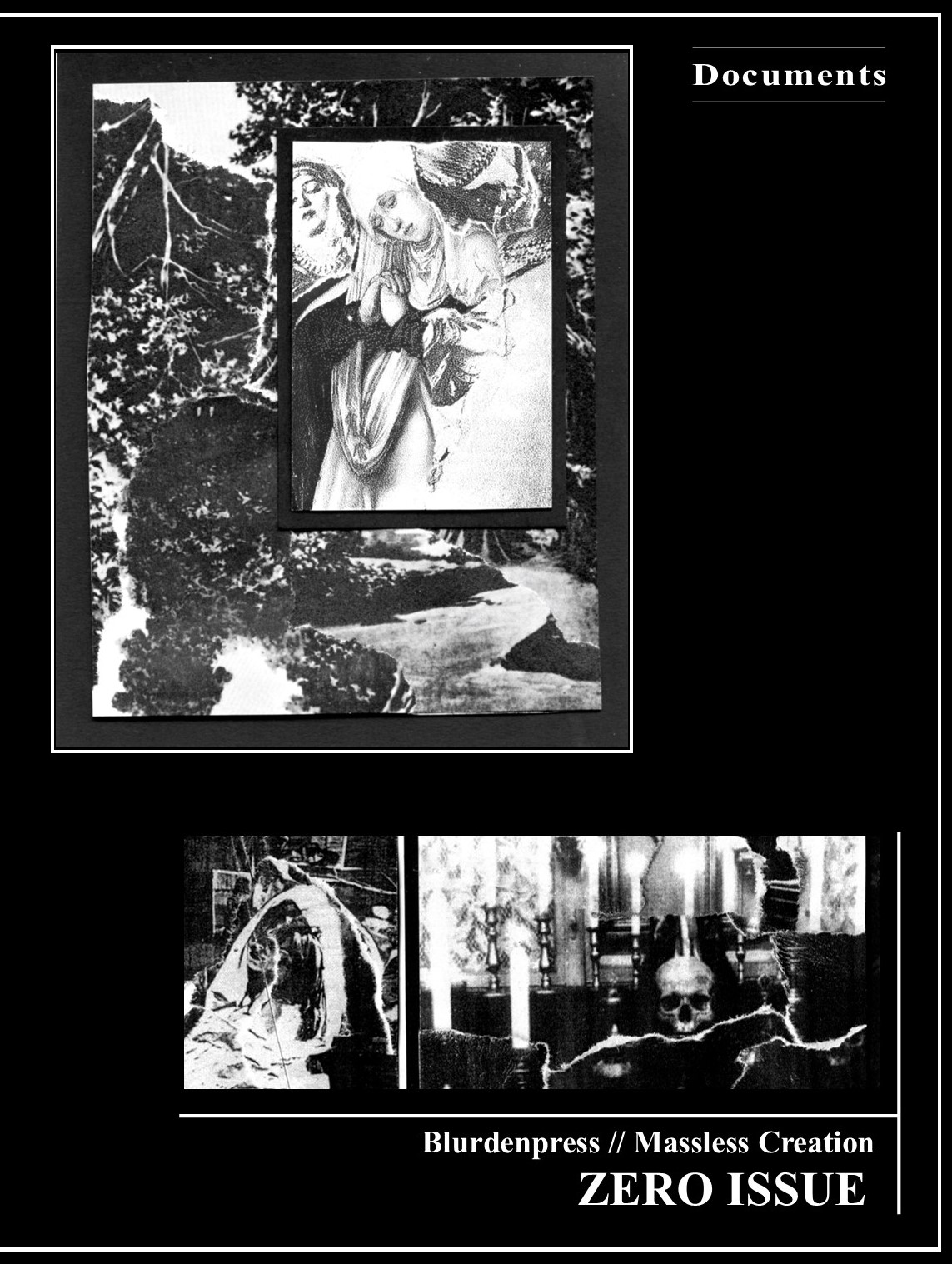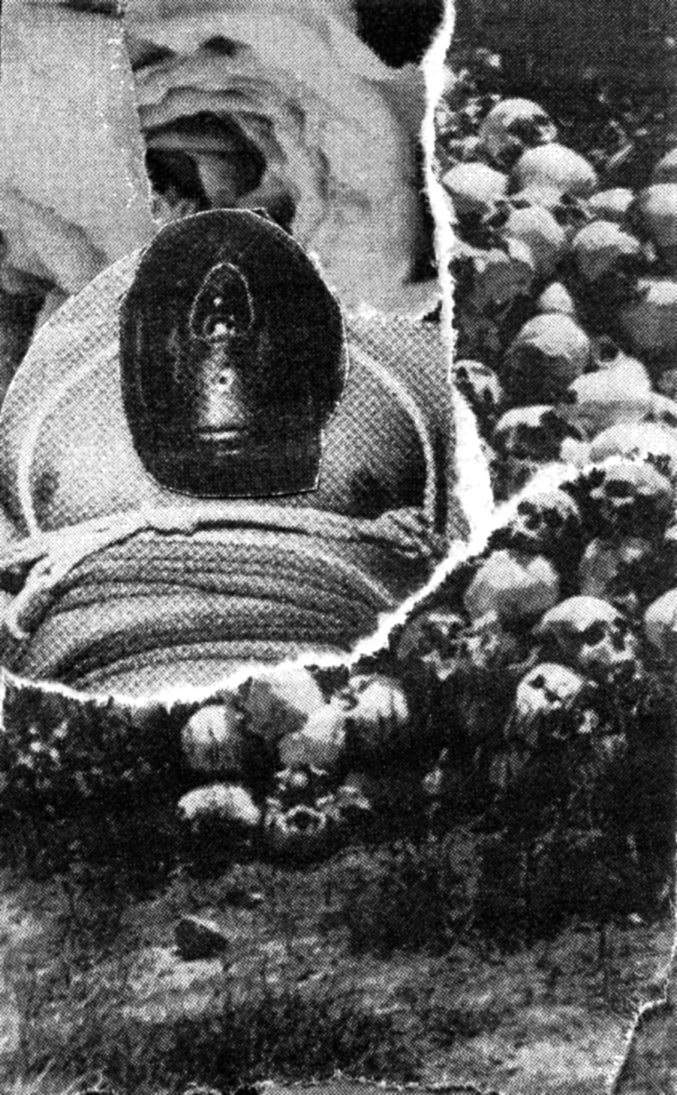Nothingness, (2021)
- Jason JenkinsNothingness is necessary. Nothingness, emptiness, mystery, newness or the other reveals its use value in condition. This value is beyond mere transaction – transitioning into the purity realm of the gift. The base of this idea functionally traces that of the sacred and the profane – the totality of the two’s dance. Nothingness or what is empty is ready to be filled.
What’s more is something must be empty or have some empty (open) space in order to take something else in. Is this a voluntary practice? Compulsive? Rupture? Is a welling inside ascenting to its summit surface a parody of lava escaping its earthly confines? Does it matter? Is it anything other than matter (that of the senses themselves would thoroughly provoke a yes). Does “nothing [truly] matter but the end of matter? (Genisis P-orridge). This destruction that causes us to come into being, this necessary sin that conditions redemption – the experience is the mystic experience, and it depends on a giving. The giving of oneself – in opening or extending (excessing consciousness) leaves oneself in a position to be filled – by the returning self (from its heroic journey) or the other, which in reality is the self, loved in shared affirmation (Sabina, Taussig).
Let’s consider the nothingness in issue 02 of The New Era Magazin [A Scandinavian magazine on interiors]. The paradox coursing through the book’s vapid minimalism, who’s void of sensation [Freudian displeasure] taunts the viewer into an frenzied agitation that can only be turned into a state of knowable ease [pleasure] by ordering the ruthless chaos of possibility – in this case – through desire and imagination. So here, emptiness inspires to create - but the emptiness of visual minimalism and the reason it inspires or even more, urges the sacred quality of creation (be that build or destroy/8) solely rests on its emptiness. With its anchors drowning the book’s design in the waves of unperceived eternity, it provokes the reader with a case of total risk – this begins with opening the book at all, let alone engaging with the material. But what is at risk? Time, energy, life, trust, focus and everything that’s excessed in giving.
Imagine yourself and another. Now imagine you have a desire – to the other you confess, and with that confession validated in affirmation you prepare yourself to receive. Your arms are outstretched and the other is extended from themselves with a longing, critically stained by love’s giving. The other’s longing gaze appears as a gift in their hand – which they are now holding over yours. The exchange has begun. Yet, in this scenario your hands are closed fists, or perhaps they are already filled with your past’s preoccupations. The other drops the gift down to your unopened, unaccepting, and preoccupied hands. That which you so desired, now in the form of the other’s gift returning to you jettisons off and away from your space to receive, because the necessary nothingness (as openness) was unavailable to dwell in. What would change if the confession of desire was in the other rather than to them (love)? What would be left of the body whose total senses are uplifted and planted in the being of another? As consciousness is of the senses – the supremacy of the body, what would be left of one who in forsaking time and prior occupation, gift (sacrifice, love) the entirety of its conscious being to the open end of another? Byung-Chul Han (The Agony of Eros, 23) would answer saying that the gift of the other is the return to oneself (affirmed and re/a newed) – Sabina Spielrein, in her mystic-psychoanalytical musing (Destruction as the cause of coming into Being, 162 - 163) would say the same towards the self’s return after such an experience of the other. Clear - this is about experience and the gift of most certain (re)new(al).
“In the silence in which I found myself crazily open to every possibility, I remained perched on the void – and everything seemed equally ridiculous, hideous, and possible to me… At that instant I passed beyond. Then and there I recognized God” - Georges Bataille, On Nietzsche, 56.
Bataille – free of God and “ferociously religious.” In denying the known god (that’s shaped in the image of man, the familiar), Bataille experiences God in recognization. Bataille responses in divine laugher, but the experience is no less wrenchingin discomfort – something truly shaken and worthy of ecstasy glazes crisis. By why deny? Better yet, why place oneself in a perpetual state of unknowing? The answer is simple: To know would be to cease searching (for the grail). In this condition, (remember in modernity the sacred and profane more commonly scale to the personal, the everyday) to order in knowing renounces freedom in the name of serving the established. Laughing at the known, the human, the parodic reflection of the self and world, Bataille operates a transcendent act which propels him beyond himself and the known. To know would be to limit not only God, but life. (In joyous paradox, a limit would also create the condition needed for rupture as it points its perverted finger directly towards transgression.) Unknowing is the starting point of knowing. Yet, in this perpetual negation the process is a cyclical eternal. The “object” of that unknowing is simultaneously without and within. (Surely, we can see early Rochelle’s “eternal futurism” here in its longing for perpetual becoming).
This constant renewal demands space become the measurable in the renewals search for the indeterminable. Experience offers a nothingness/ unknowingness that urges us, fascinated, to empty ourselves into experience – thus becoming empty on both fronts for only a moment of ecstatic annihilation. Anyway, can you truly lose yourself in a completely known forest or universe?
[Documents - Zero Issue]
[Documents - Zero Issue]
[Documents - Zero Issue] [Documents - Zero Issue]
![]()
![]()
[Documents - Zero Issue] [Documents - Zero Issue]



